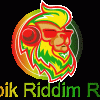
Dub

Dub music is a subgenre of reggae that emerged in Jamaica in the late 1960s and early 1970s. It is characterized by remixing existing reggae tracks, focusing on deep basslines, heavy reverb, echo effects, and stripping the music down to its instrumental elements. Dub is often seen as a precursor to many modern forms of electronic music, including electronic dance music (EDM), dubstep, and hip-hop.
Here are the key characteristics of dub music:
Remixing and Instrumentals: Dub music primarily involves remixing previously recorded reggae tracks, often removing or reducing the vocal sections to highlight the instrumental “riddim” (rhythm). The tracks are then transformed with various production effects.
Sound Effects: A defining feature of dub music is its use of production effects, such as reverb, echo, delay, and phasing. These effects create a spacious, atmospheric sound, giving the music a surreal, almost otherworldly feel.
Prominent Bass and Drums: Dub heavily emphasizes the bass and drums, often isolating them as the core of the track. The “one drop” rhythm, a hallmark of reggae, is central, with the bass providing a deep, repetitive groove that drives the music.
Studio as Instrument: Dub music shifted the focus from live musicians to the studio engineer or producer, who became an artist in their own right. Producers like King Tubby, Lee “Scratch” Perry, and Scientist are regarded as pioneers of dub, using the mixing console as a creative tool to manipulate sounds.
Minimalist and Experimental: Dub is often minimalist, with stripped-down arrangements. Vocals, if present, are treated with effects like echo and are often used sparingly, leaving space for the instruments and effects to dominate the track. The genre is also experimental, with each remix sounding distinct.
Rastafarian and Spiritual Themes: Although largely instrumental, dub music often retains the spiritual and cultural themes of reggae. When vocals are included, they frequently convey Rastafarian messages, social commentary, or reflections on the struggles of life.
Influence on Other Genres: Dub’s innovative use of effects and remixing techniques has influenced numerous genres, including electronic music, hip-hop (especially in its production style), post-punk, and even rock. Its emphasis on the producer’s role paved the way for modern remix culture.
Dub music is an integral part of Jamaican music history, and its legacy continues in the work of modern artists and genres that draw on its deep, echo-laden soundscapes.




